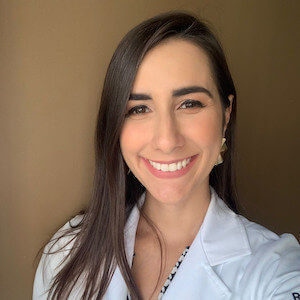Getting pregnant is a dream for many women, but do you know how pregnancy actually happens? In this post, I’ll create a sort of guide that explains the whole process in detail so that even beginners will become pros on the topic. Have questions about how pregnancy happens? Then don’t take your eyes off the screen.
The Beginning of Everything
The entire process for pregnancy to occur starts on the first day of the menstrual cycle. With the shedding of the endometrium (the inner lining of the uterus that becomes menstruation), a new hormonal cycle begins. And as we’ve already seen here in the post about the menstrual cycle, everything is based on the balance of hormones.
With the production of FSH, which is the follicle-stimulating hormone1, eggs are triggered to leave their resting state in the ovarian reserves and start to grow. Soon after, estrogen takes the stage, thickening the endometrium again and helping the ovarian follicles grow even more. In the third hormonal phase, LH (Luteinizing Hormone) enters the scene, reaching its production peak when follicles reach a good size to start maturing, usually at 19 to 21mm. After the LH surge, the egg is released, and if the woman has sexual intercourse, she may become pregnant.
This is a period that can be detected through ovulation tests, which indicate if ovulation is about to occur or is already happening, making life much easier for those trying to conceive. A good tip for ovulation tests is those from Famivita.
How Fertilization Happens
Pregnancy occurs during the fertile days, which are 7 days when ovulation is likely. However, even having intercourse at the beginning of the fertile period can result in pregnancy because the sperm can stay quietly waiting for ovulation to occur in order to fertilize the egg.
Watch below a video about fertilization, the first phase of pregnancy.
After fertilization, which happens in the fallopian tubes, the zygote (the name given to the fertilized egg) travels to the uterus. This process can take 7 to 15 days. Fertilization is performed by one sperm in one egg, and after the sperm enters, the egg’s layer changes and becomes impermeable. No one goes in or out anymore!
From that point on, the magic of life only moves forward, as cell multiplication happens very quickly. From two initial cells, the egg and the sperm, others begin to appear and multiply very rapidly2, it’s amazing! If two or more eggs are released and are all fertilized, then the chance of a twin pregnancy is high!
When Does Pregnancy Actually Happen?
Once it reaches the uterus, the zygote needs to attach to the endometrium. Do you know the blood that comes during menstruation? Well, it gives you a clue as to whether or not implantation and pregnancy have occurred. When it does, the pregnancy hormone begins to be produced, and if a test is taken, it will turn positive! Opt for reliable and highly sensitive pregnancy tests such as Famivita, which can detect pregnancy up to 5 days before your period is late.
Consider yourself pregnant! But remember, from start to finish with a positive result can take about 30 days or more, depending of course on each person’s body and cycle.
When Symptoms Appear
After implantation the embryo divides into two parts, one will become the baby and the other will become the placenta. From then on, the HCG, the exclusive hormone of pregnancy, increasingly increases its production and the symptoms start to appear.
The most common symptoms3 are absence of menstruation, nausea, breast pain, and excessive sleepiness. The egg can survive about 24 hours after being released, a short life, right? The sperm can survive up to 72 hours if the environment is favorable, so cervical mucus is very important.
I’ll leave some links to posts for women trying to conceive that can help a lot if you want to become pregnant.
How to Detect Your Fertile Period Sex Positions to Get Pregnant – Tips and Tricks Ovulation Symptoms and Their Signs
Pregnancy is counted from the first day of your heavy bleeding period so don’t be alarmed if it takes longer than you expected. Talk to your gynecologist, who will explain exactly how it all works. And if you have any questions about the fertile period or about how pregnancy happens, feel free to leave them in the comments—we always answer with a lot of care and love!
See also: Pregnancy Weeks – How to Convert to Months? and Pregnancy Calculator












